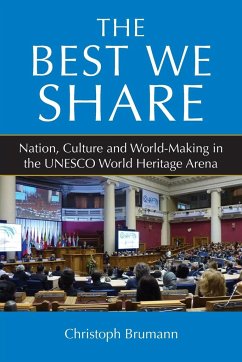The UNESCO World Heritage Convention is one of the most widely ratified international treaties, and a place on the World Heritage List is a widely coveted mark of distinction. Building on ethnographic fieldwork at Committee sessions, interviews and documentary study, the book links the change in operations of the World Heritage Committee with structural nation-centeredness, vulnerable procedures for evaluation, monitoring and decision-making, and loose heritage conceptions that have been inconsistently applied. As the most ambitious study of the World Heritage arena so far, this volume dissects the inner workings of a prominent global body, demonstrating the power of ethnography in the highly formalised and diplomatic context of a multilateral organisation.
Hinweis: Dieser Artikel kann nur an eine deutsche Lieferadresse ausgeliefert werden.
Hinweis: Dieser Artikel kann nur an eine deutsche Lieferadresse ausgeliefert werden.








